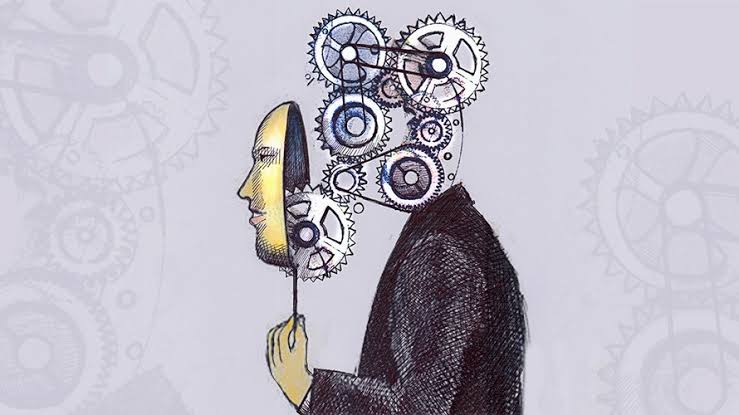Explore the impact of AI automation on the creative industry, including graphic design, music composition, writing, and video production. Discover how AI tools enhance productivity and creativity while raising questions about originality and authorship. Learn how creative professionals can adapt to these changes and leverage AI to complement their skills and innovate in their fields.
The Influence of AI Automation, in the Field of Creativity
Artificial intelligence AI has made an impact in industries and the world of creativity is no different. Whether its in graphic design, music creation, writing or video making AI automation is changing the way creative content is made shared and enjoyed. This shift brings both opportunities and challenges for individuals in the field. Recognizing how AI automation is affecting the creative industry is crucial for adjusting to these changes and making the most out of this technology.
AI in Graphic Design
In the field of graphic design AI automation has brought about tools that simplify the design process. Software powered by intelligence can quickly create logos, layouts and other visuals by analyzing design trends and patterns. For example tools like Adobes Sensei and Canvass Magic Resize utilize learning algorithms to help designers produce content with effort. These tools can automate tasks, like image resizing and color scheme suggestions allowing designers to concentrate on making decisions.
Nevertheless the increasing presence of AI in graphic design also raises concerns, about originality and creativity. While AI tools can generate designs based on established patterns they may lack the understanding and innovation that human designers contribute to their work. As AI technology advances the role of designers may evolve towards overseeing and refining AI generated designs to ensure they align with brand identity and creative vision.
AI in Music Composition
The influence of AI, on music creation is also significant. AI algorithms can sift through data to produce new tunes replicate styles and even collaborate with human artists. Tools like Amper Music and Aiva harness AI to craft music tracks offering a fresh perspective on music production. These resources can support musicians by sparking ideas creating accompaniment or streamlining tasks like arranging and orchestrating.
AIs capacity for music composition prompts discussions, about creativity and ownership. While AI generated melodies can be impressive they often draw upon patterns and information from existing works. This raises concerns regarding the originality of AI produced music and its potential impact on the established music industry. For artists and songwriters embracing AI can mean utilizing it as a tool to enrich their creative journey rather than substituting their artistic input.
AI in Writing and Content Creation
The sectors of writing and content creation have experienced progress, due to the automation of AI. Tools like GPT-3 and Jasper powered by AI can produce articles, blog posts and marketing materials with fluency and coherence. These tools offer assistance to writers by providing drafts suggesting edits and generating content ideas based on user input. Additionally AI aids in content curation and personalization by tailoring material for audiences based on their preferences and behaviors.
While AI boosts efficiency and simplifies content creation it also poses challenges, in terms of quality and authenticity. Content generated by AI may lack the depth and subtlety found in writing raising concerns about potential misuse such as creating misleading or biased information. For writers and content creators the key to effectively utilizing AI lies in using it as a supplement to human creativity and judgment rather than a replacement.
AI in Video Production
The field of video production is witnessing advancements with the introduction of AI automation. These tools offer assistance in various phases of video creation such, as editing color correction generating subtitles and pinpointing moments. Software like Adobe Premiere Pro and Final Cut Pro now integrate AI capabilities to streamline tasks like scene detection, video stabilization and even suggesting edits based on the footage. Additionally AI powered tools can aid in crafting video content, such, as dynamic advertisements that tailor themselves to viewer preferences.
The incorporation of AI into video production improves efficiency allowing creators to concentrate on the aspects of their projects. However it also prompts discussions about finding a balance between automation and human creativity. While AI excels at handling aspects and monotonous tasks the creative vision and storytelling in video production still rely on the insights and expertise of human creators.
The Future of AI in the Creative Industry
As AI technology progresses its influence, on the field is set to increase. AIs capacity to analyze information generate content and streamline processes will continue to advance opening up new avenues, for creativity and production. The future of AI in the industry is likely to involve a blend of automation and human ingenuity with AI acting as a tool to enhance and support the efforts of creative professionals.
To adapt to the changes brought about by AI automation a proactive approach is necessary. Creative individuals should stay updated on AI advancements and explore ways to incorporate these tools into their workflows. By embracing AI as a collaborator, in the creative journey instead of perceiving it as a threat professionals can leverage its potential for innovation and enhancing their work.
In summary AI automation is reshaping the field by simplifying workflows boosting efficiency and bringing in fresh resources for artistic expression. Although there are obstacles concerning originality, genuineness and striking a balance between automation and human ingenuity the incorporation of AI offers opportunities, for creativity and advancement. By grasping and adjusting to these transformations artists can harness AI to improve their craft and remain competitive in an evolving landscape.
